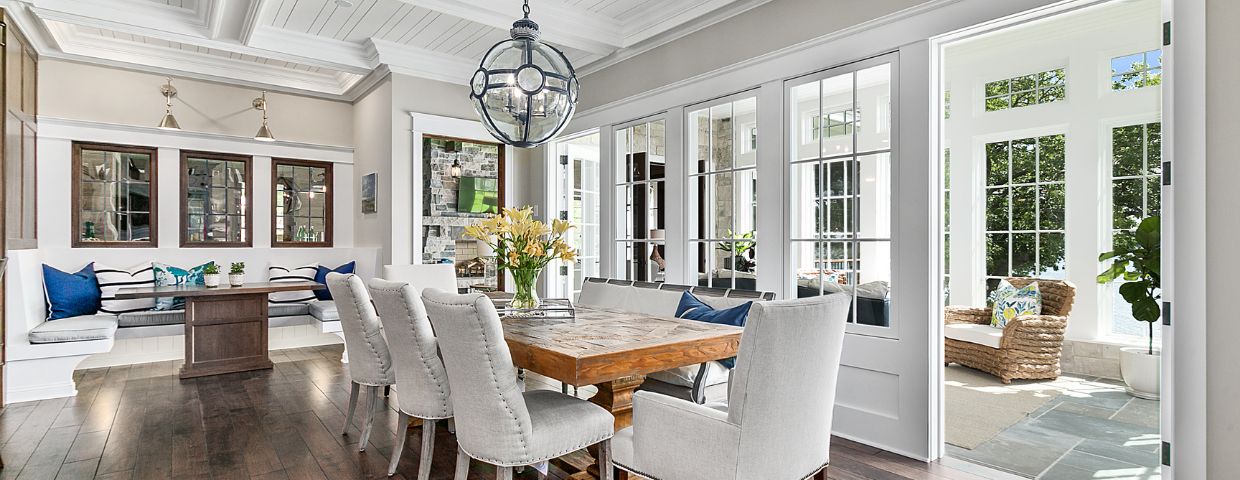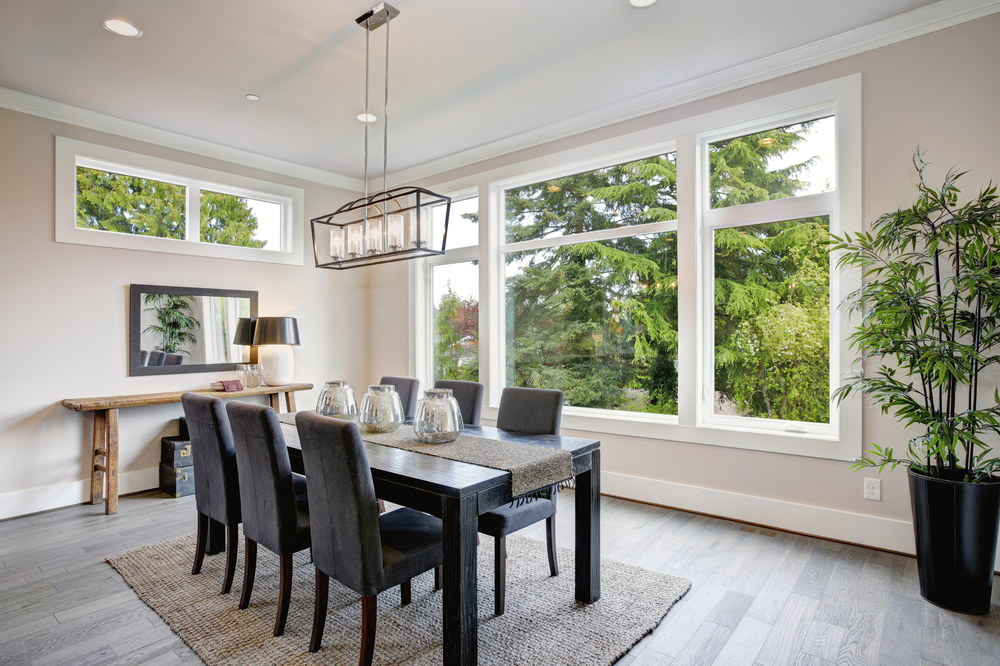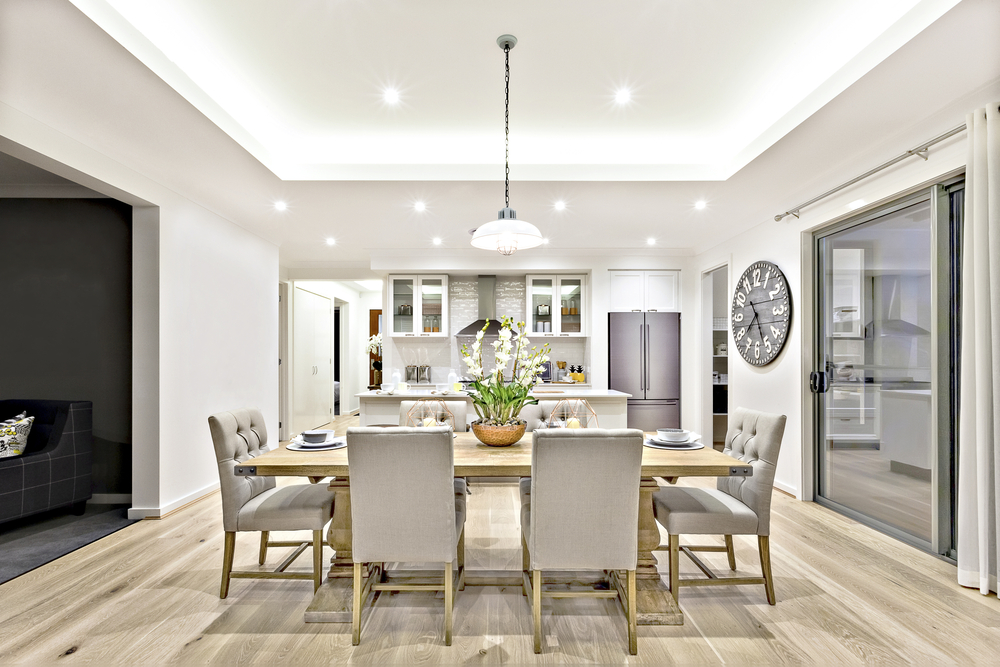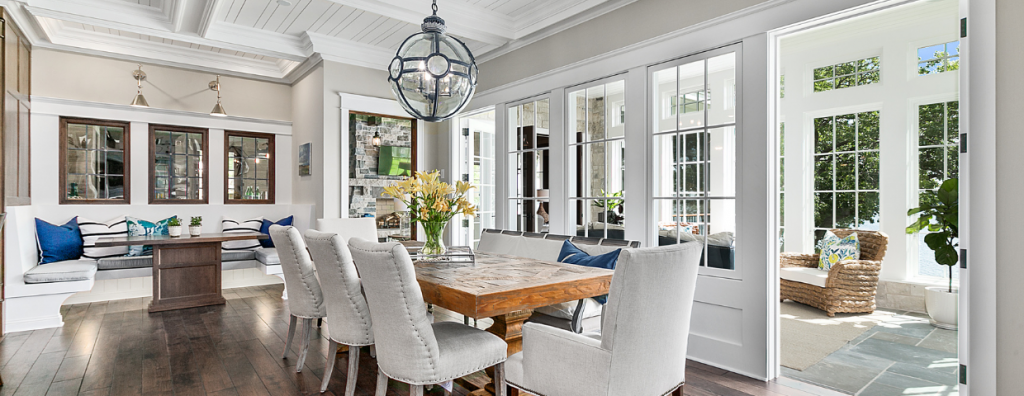
The dining room is a place of gathering, comfort, and community. Creating the right mood in the space is a matter of choices in décor and design. For example, a traditional dining room creates a heartwarming tone whereas a modern one feels minimalist and light. Homeowners can often feel puzzled when trying to upgrade their dining room, since it typically isn’t as simple as buying new appliances or green-lighting a remodeling project. Here are some simple ideas to help you upgrade your dining room and achieve the atmosphere you’re looking for.
How to Upgrade Your Dining Room
Lighting
A light fixture is often the centerpiece of a dining room. Your choice in lighting can greatly reinforce the dining room theme you’re going for, so look for fixtures that reinforce the other elements of the space. A chandelier will add a formal touch to the room, while more modern fixtures like pendant and warehouse lights can deliver a sense of chic sophistication. If you plan to hang a chandelier, keep in mind that the bottom of the fixture should hang roughly three feet above the dining room table. If you have vaulted ceilings, it should hang even higher.
Flooring
A full dining room upgrade happens from the ground up. If your flooring is outdated or showing signs of wear and tear, it’s the perfect time to add a flooring upgrade to your project list. Choosing the right flooring is a matter of identifying what material will work best in the space, assessing your budget, and forming a plan for installation. Materials like vinyl, ceramic tile, and hardwood are popular options, not only for their durability, but also because they’re easy to clean. Other niche options like cork or concrete can help create a specific ambience but may not be as widely available. Once you’ve decided on your material, talk to local contractors to compare installation quotes. There are pros and cons to installing flooring on your own or hiring a professional; know what they are before making a final decision.

Image Source: Shutterstock – Image Credit: Artazum
Table & Chairs
When it comes down to it, the essential function of your dining room is to provide a setting for enjoying a meal. Together with your main lighting fixture, your table and chairs help to form the focal point of the room. Size is a critical component of your dining room table. There’s a Goldilocks dynamic with dining room tables. The larger the table, the more room everyone has, but the more space it takes up. Make sure to take exact measurements before shopping around so you know exactly what size you’re looking for.
Your chairs will reinforce the look and feel of your table. Consider balancing wood grains and matching colors. For example, if your dining room table is designed with intricate wood grain, look at chair sets with simple colors and designs to bring balance to the room. When it comes to the height of the seats, arms, and back, choose dimensions that suit the dining experience you’re looking to create. Generally, high-backed, narrower chairs create a more formal atmosphere than their rounded, modern counterparts. Either way, choose the combination that looks best to you and feels most comfortable.

Image Source: Shutterstock – Image Credit: JR-stock
Color & Décor
A fresh coat of paint can take a dining room from stale to lively in a hurry. If you’re thinking about painting your dining room, think about how the color scheme would complement and/or contrast with the colors elsewhere in your home. A contrasting color will help differentiate the space, while a complimenting color will help to tie things together. New color in the dining room doesn’t have to come exclusively from painting a wall. Colored furniture pieces, decorative throw pillows, placemats, and table décor can help liven the space as well. Curtains and drapes can add a splash of color while softening the room, and when paired together with a decorative rug, can make your colors pop at different eye levels.
 Facebook
Facebook
 X
X
 Pinterest
Pinterest
 Copy Link
Copy Link


